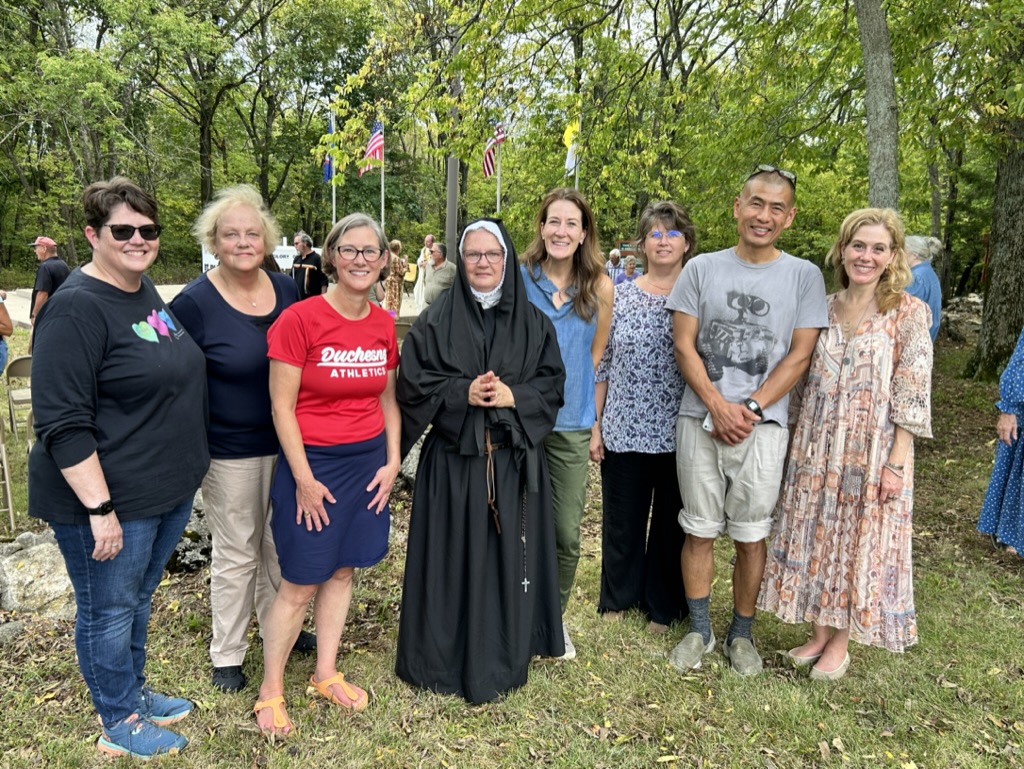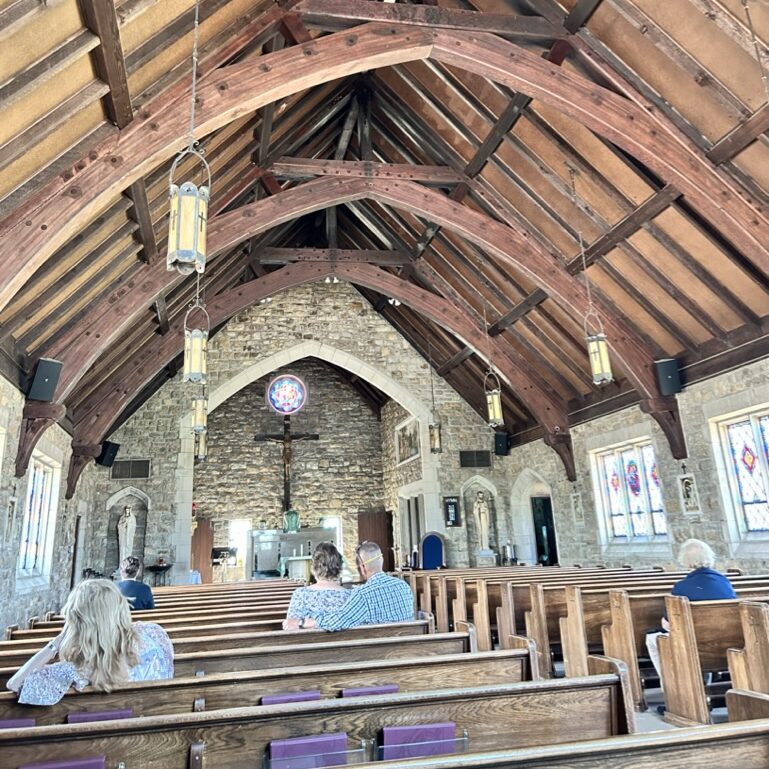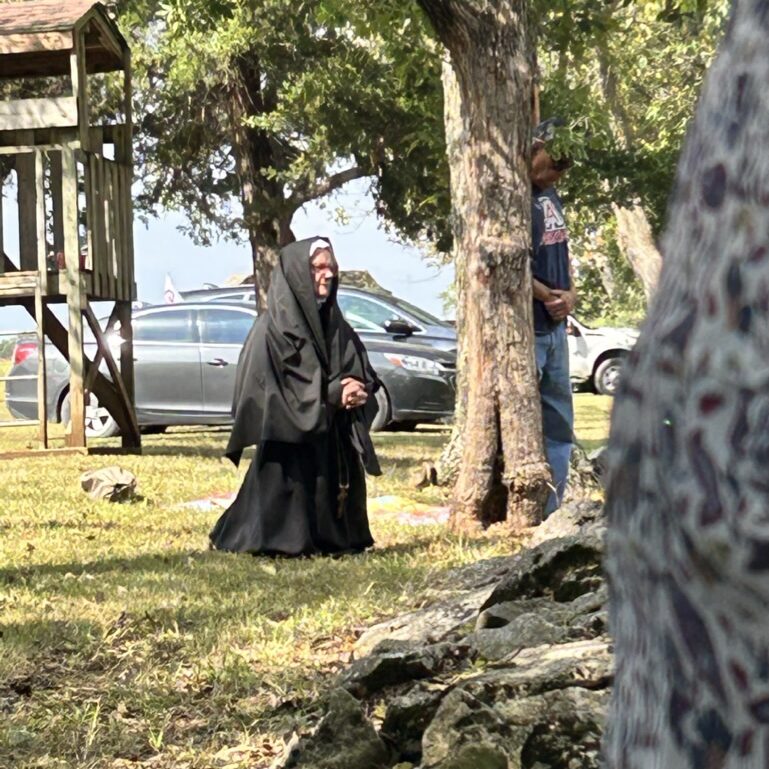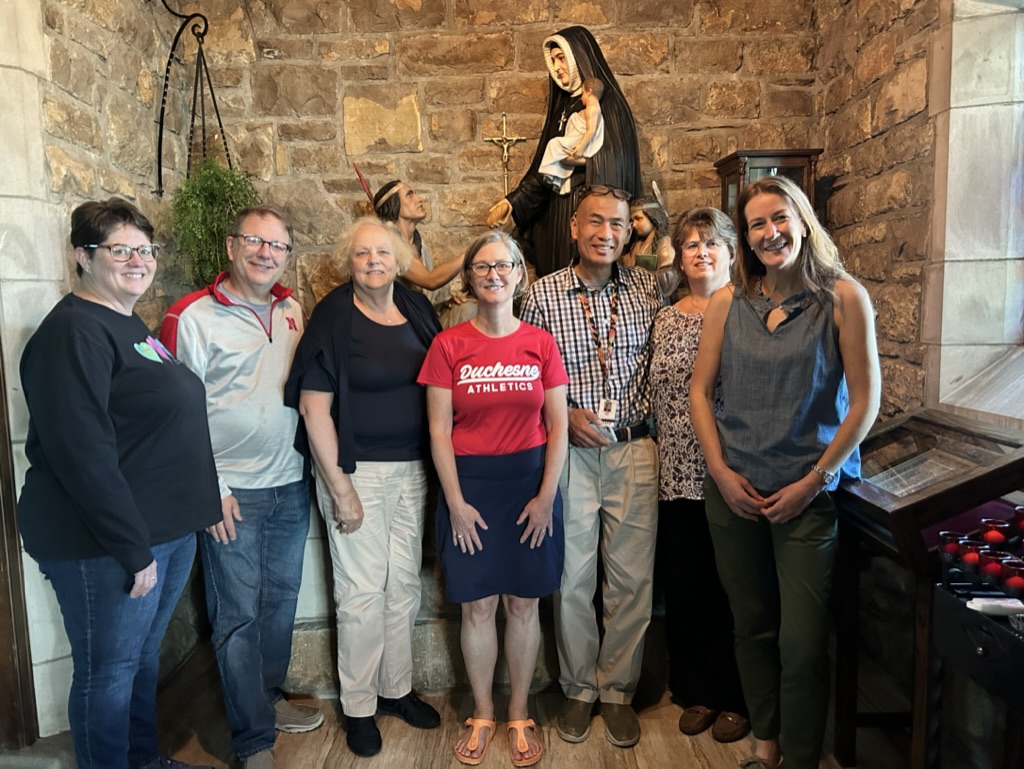

If anyone lived the Archdiocese’s Pastoral Vision of One Church, it was St. Rose Philippine Duchesne, the Sacred Heart nun who, over a century ago, not only served members of the Pottawatomi tribe but accompanied them in their trials as well.
Though this relationship is over 150 years old, its impact reverberates within the Native American tribe and Duchesne Academy of the Sacred Heart population today. And thanks to a grant from the Catholic Future Foundation, the two communities were able to join in worship and remembrance this past September.
In 1862, St. Rose Philippine Duchesne, who belonged to the French order Religious du Sacre Coeur de Jesus (RSCJ), or Religious of the Sacred Heart, traveled by steamboat and covered wagon from St. Charles, Missouri, to a newly established reservation for the Pottawatomi outside of Mound City, Kansas. The tribe had been forced to march from their home in North Bend, Indiana, an event today referred to as the Trail of Death, to arrive at the reservation without shelter or food. St. Rose Philippine lived among the Pottawatomi and became a treasured member of their community.
In fact, when she was canonized in 1986, a contingent of Pottawatomi members showed up in Rome, in full tribal regalia, to recognize a woman they considered a saint long before the Church did, says Lauran Hickman, principal of Duchesne Academy. “And they were better dressed than the cardinals,” she adds with a smile.
Every five years, members of the Pottawatomi tribe reenact the Trail of Death as a caravan from North Bend to Mound City. Last fall, eight faculty and Hickman made a pilgrimage, traveling to Kansas City and staying near the Westport landing where St. Rose Philippine arrived by steamboat. They caravanned the following day to Sugar Creek, the original reservation outside Mound City, to join their spiritual brothers and sisters at a Mass in honor of the Pottawatomi who lived and died there as well as honor St. Rose Philippine.
“I was so happy to be able to make the trip,” says Heidi Reinhart, History Department Chair at Duchesne Academy. “The pilgrimage revealed to me how much dedication the people in this area have to St. Rose Philippine, and it was inspiring to see that they have claimed her as their own. I think she would have loved that. It was especially moving to see members of the Pottawatomie tribe arriving with flags flying from their cars from the memorial trip that traced their ancestor’s original death march. People even rode in from Kansas City on horseback. It was an honor to be able to celebrate Mass with them, remember St. Rose Philippine’s role, and join them as they memorialized their ancestors.”
It was the second pilgrimage French teacher Frederika ver Hulst made. She says both trips have been profound shared experience for those who love and revere St. Rose Philippine.
“Walking in St. Rose Philippine’s footsteps in the woods surrounding the settlement, imagining their lives during the harsh winters of the times, praying, and attending the beautiful Mass, which is the culmination of the Trail of Death five-year celebration, adds to the meaningfulness of the day,” she says.
Hickman says the pilgrimage, made possible by the grant, was important to her school community because it reinforced that their namesake still has something to say: “That we love God by how we care for the most marginalized people.” For St. Rose Philippine, this was the Pottawatomi.
2024 grant applications are being accepted now through April 30 for distribution in July. Hickman calls the process “super easy” and was the only way her group could make the pilgrimage.
“The grant made it possible for us to maintain a modern-day connection to the people who were so important to Philippine Duchesne. I love that we are part of that history, that we could worship on the site where the original church was built, sit on the rock St. Rose Philippine did, and walk on hallowed ground.”
“I love going there. I feel St. Rose Philippine when I am there,” Hickman adds.


